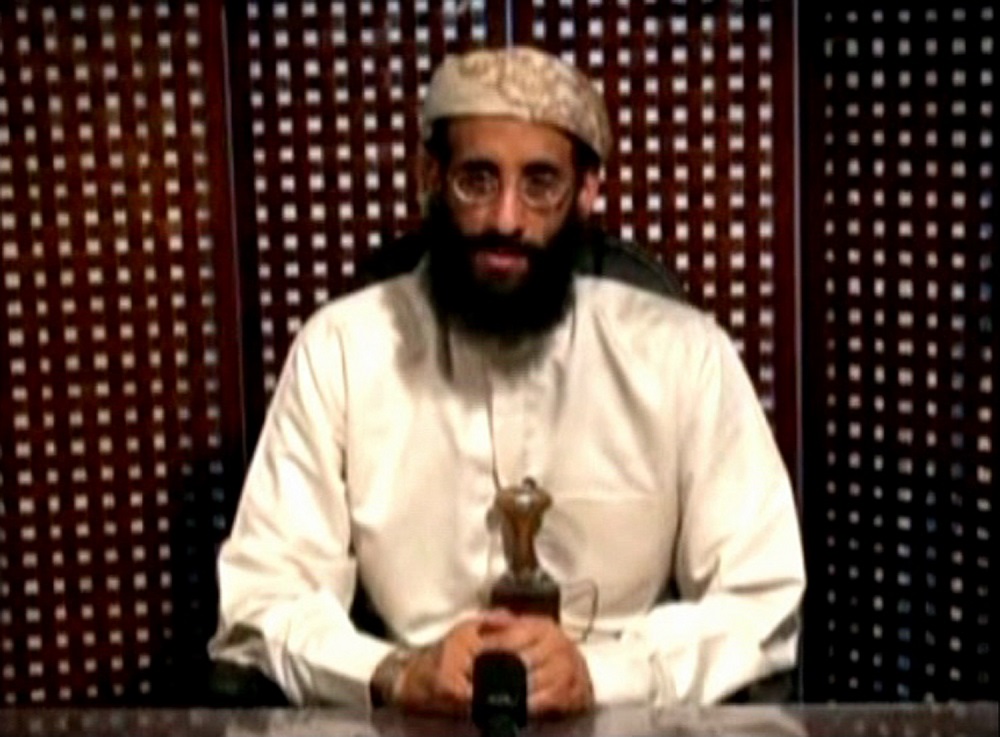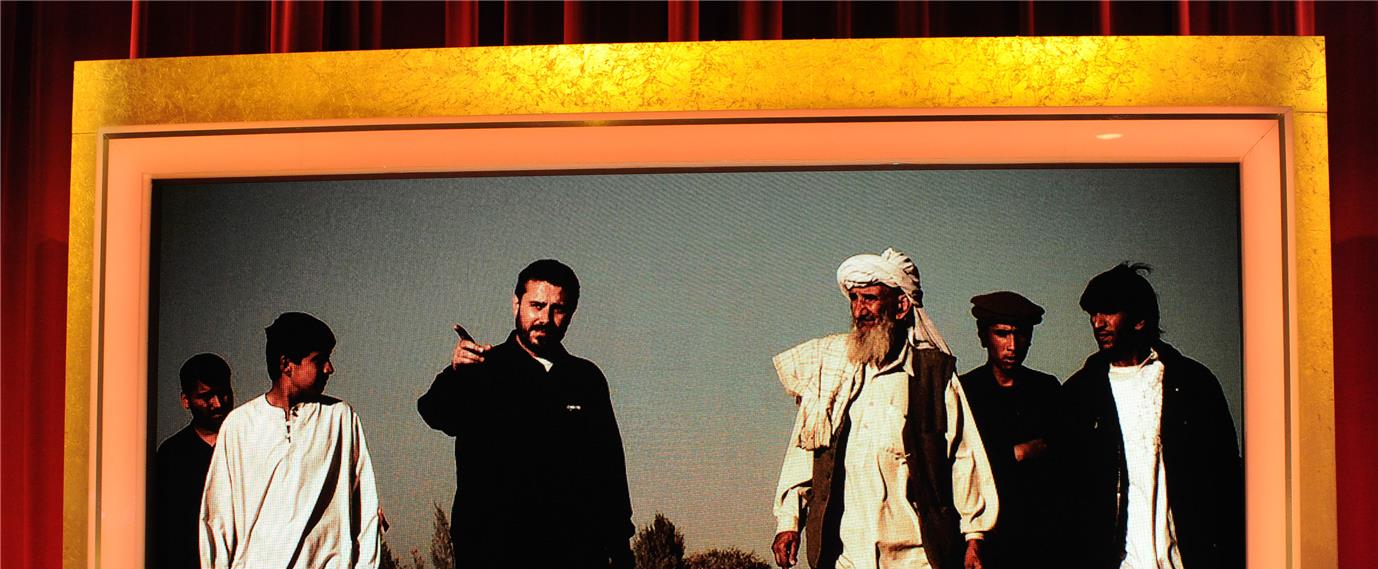في حفل جوائز الأوسكار عام 2014 كان تحقيق صحفي استقصائي على لائحة المرشحين لأفضل فيلم وثائقي، وهو الفيلم الذي يوثق لجهد صحفي قام به صحفي مجلة "ذي نيشن" (The Nation) آنذاك جيريمي سكاهيل، الذي يعمل حاليا في موقع "ذي إنترسبت" (The Intercept) الإخباري.
تدور أحداث الفيلم (التحقيق) بين عامي 2010 و2011، حيث بدأ سكاهيل إنتاجه خلال عمله مراسلا في أفغانستان، بعد أن عثر على الخيط الأول في تحقيقه من خلال التشكيك في بيانات حلف شمال الأطلسي (ناتو) حول الغارات التي تشن على طالبان في أفغانستان، الأمر الذي دفعه للخروج من المنطقة الخضراء إلى باقي المدن التي كان يسميها الناتو "المناطق المنكرة" (Denial Areas)، وقاده إلى هناك تقرير (1) مراسل صحيفة "التايمز" البريطانية في كابل جيروم ستاركي حول حادثة مقتل خمسة أشخاص -بينهم ضابط في الشرطة الأفغانية ونساء حوامل- في مداهمة لجنود أميركيين منزلا بمدينة غارديز في ولاية كابيتا، الذي أصدر الناتو في وقتها بيانا يكذب فيها الصحفي ستاركي ويحاول تشويه سمعته المهنية (2).
فتش عن المصادر الغائبة عن المشهد
حاول سكاهيل إعطاء القصة بعدا إنسانيا جديدا تعدّى مجرد ذكر أسماء الضحايا والقاتل، وخاطر بنفسه للذهاب إلى غارديز نفسها لسماع شهادة أهالي القتلى حول الحادثة، وإعطائهم حقهم في التعليق على قصة مقتل أقاربهم، ليعثر على فيديو مصوّر على هاتف محمول لأحد أقارب الضحايا يوثق الدقائق الأخيرة قبل اقتحام القوات الأميركية للمنزل، ويفند الادعاءات التي اتهمت الضحايا بأنهم قُتلوا أثناء تبادل إطلاق نار.
يُظهر الفيديو ضابط الشرطة داوود الذي قُتل في الاقتحام وهو يرقص خلال حفلة أقيمت بمناسبة قدوم مولود جديد، قبل دقائق من اقتحام القوات الأميركية للمنزل وقتله مع آخرين. ويورد سكاهيل على لسان الأهالي، الطريقة الوحشية التي حاول بها الجنود طمس أي دليل يربطهم بالحادثة، عبر إخراج الرصاص من أجساد الضحايا بواسطة سكين وهم لا يزالون على قيد الحياة ومنع الأهالي من أخذ المصابين إلى المستشفى.
ويتتبع الفيلم الوقائع التي حدثت في تلك الفترة والتي كان من ضمنها تحقيق سري للأمم المتحدة يؤكد الكثير من المعلومات التي رواها الأهالي حول الحادثة، لتنتهي القصة بتقديم قائد قيادة العمليات الخاصة المشتركة الأميركية (JSOC) وليام ماكريفن الاعتذار من الأهالي عبر تقديمه لهم خروفين كقربان وفق الأعراف هناك (3).
الشيطان في التفاصيل
لم يكن خبر زيارة قائد إحدى القوات الخاصة الأميركية لأسر الضحايا في غارديز لينتشر لولا أن الأهالي أصرّوا على السماح للصحفيين بالتقاط الصور بعد أن حاول ضباط منعهم، وهي الصور التي قادت سكاهيل للتعرف -للمرة الأولى- على قيادة العمليات الخاصة المشتركة الأميركية (JSOC) على حد وصفه، مثيرا التساؤل حول السبب الذي جعل قائد هذه الوحدة العسكرية تحديدا يقدم الاعتذار من أهالي الضحايا، وهو الخيط الذي قاده إلى بحث موسع شمل عمليات عسكرية في اليمن والصومال وأفغانستان ودول عديدة أشرفت عليها هذه الوحدة العسكرية الخاصة، التي تبيّن أنها تتحرك وفق أوامر رئاسية سرية تصدر من البيت الأبيض مباشرة، قبل أن تصبح مشهورة للعلن مطلع العام 2011، بعد تنفيذها عملية اغتيال زعيم تنظيم القاعدة أسامة بن لادن (4).
هذه المعلومات جعلت سكاهيل يتوسع في تحقيقه أكثر، ليبدأ بالبحث عن الهجمات الأميركية التي كانت تتم داخل دول لم تعلن الولايات المتحدة حالة الحرب فيها، كمجزرة "المعجلة" في محافظة أبين اليمنية عام 2009، التي قتلت خلالها القوات الأميركية أكثر من 40 مدنيا -بينهم نساء وأطفال- بعد استهداف مخيم للمدنيين بصواريخ كروز (5).
حدود لحرية الصحافة بأميركا!؟
يطرح الفيلم قضية ذات أهمية فيما يتعلق بحدود حرية الصحافة داخل الولايات المتحدة، وحجم دعمها لتلك الحرية في بلدان العالم، حيث يعرض حادثة اعتقال السلطات اليمنية للصحفي اليمني عبد الإله شائع، الذي فنّد رواية السلطات الرسمية اليمنية التي ادعت أنها المتسببة في تلك الغارات، بعد أن زار منطقة الهجوم والتقط صورا لبقايا صواريخ أميركية لا يملكها الجيش اليمني، وأرسلها إلى وكالات أنباء عالمية ومنظمة العفو الدولية (6)، لتلقي السلطات اليمنية القبض عليه بتهمة التعاون مع تنظيمات مسلحة.
المفارقة التي التقطها سكاهيل في قصة شائع، أنه في بدايات العام 2011 خرجت أصوات شعبية تنادي بإطلاق سراح عبد الإله شائع من السجن، بعد أيام من اندلاع الاحتجاجات التي أسقطت الرئيس اليمني علي عبد الله صالح. وكان الأخير قد صرح يوم 2 فبراير/شباط 2011 بأنه سيصدر عفوا عاما عن شائع خلال ساعات، إلا أنه تراجع عن القرار بعدما اتصل به الرئيس الأميركي السابق باراك أوباما. سكاهيل عاد لسجلات البيت الأبيض في ذلك اليوم ووجد بالفعل نص المحادثة التي جرت بين الرئيسيْن، والتي تضمنت طلبا ضمنيا من أوباما بعدم إطلاق سراح شائع الذي كشف تورط الولايات المتحدة في مجزرة "المعجلة" (7).
تفتح هذه القضية بابا آخر أمام سكاهيل وهو قصة أنور العولقي، المواطن الأميركي ذي الأصول اليمنية الذي اغتيل بطائرة أميركية مسيَّرة في اليمن، ومن ثم اغتيل ابنه عبد الرحمن (16 عاما) بعد أيام، ليثير سكاهيل قضية حقوقية تتعلق بالصلاحيات الخاصة بالرئيس أوباما، والتي تسمح له بقتل مواطنين أميركيين دون أي محاكمة.
يروي سكاهيل في الفيلم أنه تعرّض لتهديدات مبطنة من قيادات داخل الجيش الأميركي، واختُرِقَ حاسوبه الشخصي ونُسخ جزء من الملفات الموجودة فيه، مما يشير إلى حجم الضغوط التي يمكن للصحفيين الأميركيين أن يتعرضوا لها لو خرجوا عن الرواية الرسمية التي تريد الحكومة إيصالها، وهو ما يثير الأسئلة حول الحرية الصحفية المسموحة للصحفيين الذين يرفضون تصديق الرواية الرسمية ويسعون لكشف المعلومات المُتحفَّظ عليها تحت ذريعة الحفاظ على الأمن القومي.

رويترز
أين تنتهي مهمة الصحفي؟
يثير الفيلم تساؤلا حول الحد الفاصل الذي تنتهي عنده مهمة الصحفي.. هل يكتفي بعرض المعلومات المؤكدة؟ كيف يمكن لمعلومات مؤكدة أن تواجه آلة دعاية رسمية تتهمها بالكذب؟ كيف يقنع الصحفيون الجمهور بقصصهم في ظل ما أصبح يعرف بزمن الحقائق البديلة (Alternative facts era) (8) التي تجعل الحقيقة عبارة عن رأي يحتمل عدة وجهات نظر.
الأسئلة الأبرز التي يمكن استقراؤها من تحقيق سكاهيل تتعلق بالكيفية التي يجب أن تروى بها القصة الصحفية، وحجم المشاهد المؤلمة، وموقف الصحفي من القضية الإنسانية: ما حجم وشكل الأدلة الكافية لتحريك الرأي العام ليتخذ موقفا تجاه قضية ما؟ وكيف يمكن للصحفي أن ينشر قصة مليئة بالحقائق إن كانت تخالف السردية الأعلى صوتا للأحداث، تلك السردية المدعومة من قبل قوى وكيانات عظمى، تحاول -في كثير من الأحيان- إخفاء الحقائق عن الرأي العام.
المراجع:
1- Starkey, Jerome. "Survivors of Family Killed in Afghanistan Raid Threaten Suicide Attacks." The Sunday Times. March 15, 2010. https://www.thetimes.co.uk/article/survivors-of-family-killed-in-afghanistan-raid-threaten-suicide-attacks-ldxs8fbbqsp.
2- ISAF Joint Command. "ISAF Rejects Cover up Allegation." DVIDS. March 13, 2010.https://www.dvidshub.net/news/46637/isaf-rejects-cover-up-allegation.
4- https://www.thenation.com/article/jsoc-black-ops-force-took-down-bin-laden/
6- المصدر السابق
7- Scahill, Jeremy. "Why Is President Obama Keeping a Journalist in Prison in Yemen?" The Nation. June 29, 2015. https://www.thenation.com/article/why-president-obama-keeping-journalist-prison-yemen/#Why.
8- Greenblatt, Alan. "Challenges from an "alternative Facts" Era." American Press Institute. April 04, 2017.https://www.americanpressinstitute.org/publications/reports/white-papers/alternative-facts-era-challenges/.







































